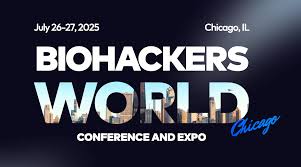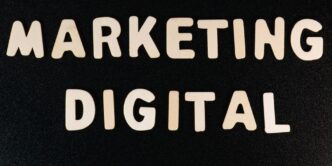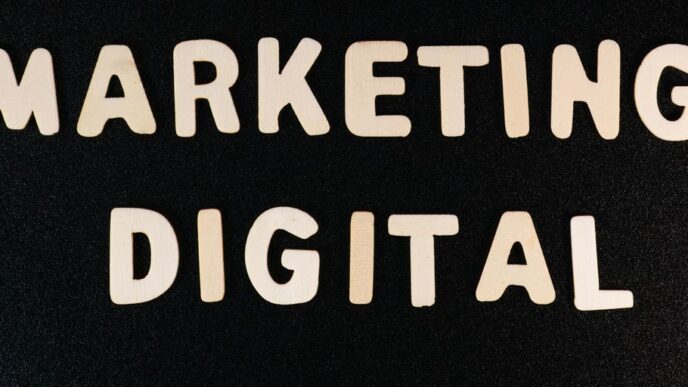Digital transformation has disrupted nearly every industry, and marketing is no exception. What once revolved around traditional media TV, radio, and print is now a world dominated by digital innovation. For marketing agencies to stay relevant, they must evolve. As businesses focus more on digital strategies, agencies must adapt their services, tools, and approaches to thrive in this fast-paced, tech-driven environment.
The Evolution of Marketing Agencies
To understand where marketing agencies are headed, it’s helpful to see where they’ve been. In the past, agencies primarily focused on creative campaigns crafting catchy jingles, designing billboard ads, and securing celebrity endorsements. Data collection was slow, and feedback from consumers took time to surface.
With the rise of the internet, social media, and mobile tech, marketing has become more interactive and data-focused. Agencies have had to embrace these changes, transforming their role in brand growth and customer engagement.
How Data Shapes Modern Marketing
Data is at the heart of digital transformation. Today’s marketing agencies heavily rely on data analytics to understand consumer behavior and predict trends. This helps them create personalized campaigns that boost engagement and conversion rates. Tools like Google Analytics, CRM systems, and AI provide insights that guide their decision-making.
As businesses increasingly adopt predictive analytics and machine learning, data will become even more essential. Agencies that can harness data quickly and efficiently will set themselves apart by delivering better value to their clients.
AI and Automation: The Game-Changers
Artificial intelligence and automation are revolutionizing marketing agency operations. AI already assists with tasks like content creation, audience segmentation, and ad targeting, but its capabilities are expanding rapidly. For example, AI-driven chatbots now handle real-time customer interactions, providing personalized recommendations and support.
On the other hand, automation handles repetitive tasks like email marketing, social media posting, and ad management. By freeing up time, agencies can focus more on creative and strategic work. As these tools improve, integrating them into daily workflows will be essential for staying competitive.
Personalized Marketing at Scale
Digital transformation has enabled agencies to deliver personalized marketing on a large scale. Once limited to customized emails or basic product recommendations, agencies can now use data and automation to create tailored experiences across multiple platforms, reaching millions of customers simultaneously.
The ability to segment audiences based on detailed criteria, such as location, interests, and behavior, allows agencies to craft messages that resonate deeply with individuals, improving the chances of conversion.
Navigating Multichannel and Omnichannel Marketing
Today’s customers interact with brands across a variety of touchpoints social media, email, websites, and apps. Marketing agencies must ensure their messaging is consistent across all these platforms (multichannel marketing) and, ideally, create a seamless customer experience across every interaction (omnichannel marketing).
By using advanced analytics and mapping customer journeys, agencies can provide a more cohesive experience, ensuring that no matter where a customer engages with the brand, it feels like part of a unified campaign.
Content Creation and Curation in the Digital Era
Content is still king, but how agencies create and distribute it has changed. AI tools like GPT-3 (behind technologies such as ChatGPT) assist with high-quality content generation, allowing agencies to focus more on strategy and storytelling.
Content curation is also becoming increasingly important. As online content grows exponentially, businesses need to sift through it and find what resonates with their audiences. Agencies that master this art will stand out in a crowded marketplace.
The Need for Agility and Flexibility
In the ever-changing digital landscape, marketing agencies must remain agile and flexible. New platforms, tools, and consumer behaviors are emerging all the time. Agencies that can adapt quickly and pivot when necessary will thrive.
Rather than relying on long-term contracts, many clients may shift toward project-based work, hiring agencies that can deliver measurable results swiftly. Agencies must stay on top of industry trends, continuously innovating to remain competitive.
Collaboration: A Key to Success
The future of marketing agencies also includes deeper collaboration with other industries. Partnerships with tech companies, data providers, and even clients’ internal teams will be crucial in delivering the best results. Agencies will need to leverage expertise in data analytics, AI, and more to offer comprehensive marketing solutions.
Conclusion: A Bright Future for Digital-First Agencies
The future of marketing agencies will be shaped by those who embrace digital transformation. Agencies that adopt data-driven strategies, AI, and automation will continue to provide exceptional value to their clients. Remaining agile, flexible, and open to collaboration will ensure they stay ahead in a rapidly evolving market. Those who embrace these changes will be positioned to lead the next generation of marketing services, offering innovative, impactful solutions in an ever-competitive landscape.










